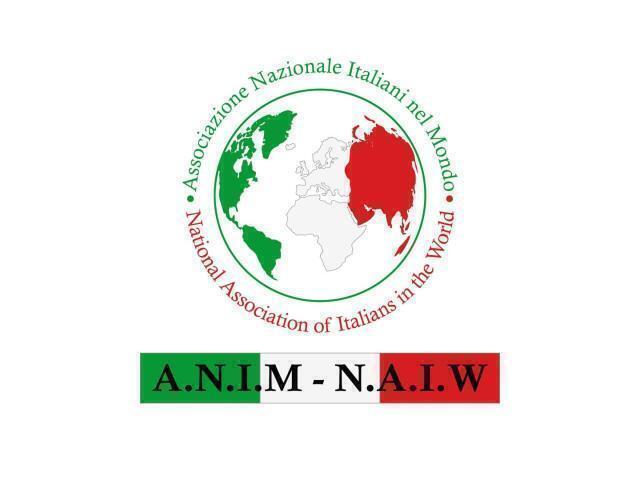The 10-Year Shift: From ISIS to “Good Militant Forces” in Syria
A Deep Dive into Corruption and Radicalization
In a scathing critique of international policies and global narratives, ECIPS President Ricardo Baretzky recently highlighted a perplexing transformation in the perception of militants in Syria. Reflecting on a decade-long trajectory, Baretzky remarked, “Just 10 years ago, when militants called ISIS took over Syria, 2 million fled to Europe, graciously given EU residency by Angela Merkel. These very same militants, 10 years later, took Syria in 12 days and are now hailed by corrupt officials as militants that suddenly they support to overthrow Syria. It baffles me how in 10 years it could shift from ISIS to militants doing the good thing.”
This provocative statement raises profound questions about the integrity of global decision-making, the susceptibility of officials to ideological shifts or corruption, and the ultimate disregard for human lives in geopolitical games. It lays bare a pattern of inconsistency that seems either to point to radicalization at the highest levels of office or to a deliberate manipulation of public perception.
A Decade of Contradictions: The Rise and Rebranding of Militant Forces
The transformation from condemning ISIS as a terrorist organization to applauding militant groups with similar ideologies and tactics is not merely a lapse in judgment; it’s emblematic of deeper structural issues. In 2014, the world watched as ISIS rapidly gained control over large swaths of Syria and Iraq, committing atrocities that led to their universal condemnation. Millions fled, creating a humanitarian crisis that Europe, under Angela Merkel’s leadership, responded to with an open-door policy.
Fast forward ten years, and the same groups—now branded differently—have swept through Syria with similar speed and violence. However, their actions are now supported or quietly endorsed by Western officials. The stark shift in narrative exposes a troubling pattern: are these shifts indicative of genuine policy evolution, or are they the result of strategic convenience and corruption?
President Baretzky’s Call for Accountability
Baretzky did not mince words about the complicity of global leaders in this narrative manipulation. He stated, “It seems either officials in office have been radicalized in 10 years, as even Biden claimed victory for this, or people have simply been fooled. Either way, lives do not matter in corruption.”
This damning critique points to two possible explanations:
Radicalization of Officials: Over the past decade, some Western leaders may have been influenced—whether ideologically or through strategic interests—to adopt more lenient stances toward militant groups previously labeled as threats. This shift could stem from the desire to reshape alliances in the Middle East, even at the cost of supporting groups with dubious histories.
Public Manipulation: The more sinister possibility is that global leaders have deliberately misled their populations to justify shifting alliances. By rebranding these groups and controlling the narrative, governments can manipulate public opinion to support actions that serve political or economic interests.
In either scenario, the result is the same: the loss of countless lives and the erosion of trust in global governance.
The Role of Corruption in Policy Shifts
Corruption, as Baretzky emphasized, lies at the heart of this issue. The selective branding of militant groups is often tied to economic and political agendas. For instance, nations may turn a blind eye to human rights abuses if supporting a militant group aligns with their strategic objectives, such as securing access to natural resources, countering regional adversaries, or maintaining geopolitical influence.
This pattern is not new. History is rife with examples of nations supporting groups they once condemned, only to later face the consequences of their actions. The United States’ support for the Mujahideen during the Soviet-Afghan War is one such example; decades later, some factions of the Mujahideen evolved into the Taliban and Al-Qaeda.
In the case of Syria, the rebranding of militants as “freedom fighters” or “liberators” is a stark reminder of how easily public narratives can be shaped to serve corrupt interests.
Human Lives as Collateral Damage
Baretzky’s assertion that “lives do not matter in corruption” underscores the most tragic aspect of this issue: the human cost. The Syrian Civil War has claimed hundreds of thousands of lives and displaced millions. The shift in narratives does nothing to alleviate this suffering; instead, it perpetuates violence by providing tacit approval for ongoing conflicts.
For the millions of Syrians who fled their homes in search of safety, the betrayal is profound. Many of them sought refuge in Europe, believing in the promises of protection and stability. Now, they witness the same Western nations supporting groups that perpetuate the cycle of violence in their homeland.
Biden’s Role and the Question of Victory
President Joe Biden’s recent statements claiming victory in the context of Syria further complicate the narrative. By aligning with certain militant groups, the U.S. has signaled a continuation of its interventionist policies in the Middle East. However, the definition of “victory” in this context is unclear. Is it the overthrow of the Syrian government? The defeat of ISIS? Or simply the establishment of a new power dynamic favorable to Western interests?
Biden’s remarks, coupled with the broader Western support for rebranded militant groups, raise uncomfortable questions about the true objectives of these policies. If victory comes at the cost of legitimizing violence and destabilizing entire regions, can it truly be called a victory?
The Role of Media in Shaping Perceptions
The media plays a crucial role in legitimizing these shifts. By selectively reporting on the actions of militant groups and framing them in favorable terms, the media helps governments justify their policies. This complicity not only misleads the public but also shields corrupt officials from accountability.
Baretzky’s critique is a stark reminder of the need for independent journalism that prioritizes truth over political agendas. Without it, the public remains vulnerable to manipulation, and global leaders are free to perpetuate policies that prioritize power over people.
Toward a More Accountable Future
President Baretzky’s comments serve as a call to action for greater accountability in international policymaking. To address the issues he highlighted, several steps must be taken:
Transparent Decision-Making: Governments must provide clear and consistent explanations for their policies, particularly when they involve shifting alliances with militant groups.
Independent Oversight: International bodies should establish mechanisms to investigate and hold leaders accountable for policies that contribute to violence and instability.
Public Awareness: Citizens must be informed about the true motives behind global policies. This requires a combination of independent journalism, education, and open dialogue.
Prioritizing Human Lives: Policies must be evaluated based on their impact on human lives, rather than their strategic or economic benefits.
President Ricardo Baretzky’s critique of the shifting narratives around Syrian militants is a powerful reminder of the dangers of corruption and the devaluation of human lives in global politics. His words challenge us to question the motives of our leaders, the role of the media, and the broader structures that enable these injustices.
As the world grapples with the consequences of these policies, one thing is clear: without greater accountability and transparency, history is doomed to repeat itself. The lives lost in Syria, and the millions displaced, deserve more than empty promises and shifting narratives. They deserve justice, dignity, and the unwavering commitment of the international community to uphold the values of truth and humanity.
For European Centre for Information Policy and Security ECIPS European Security Agency.








